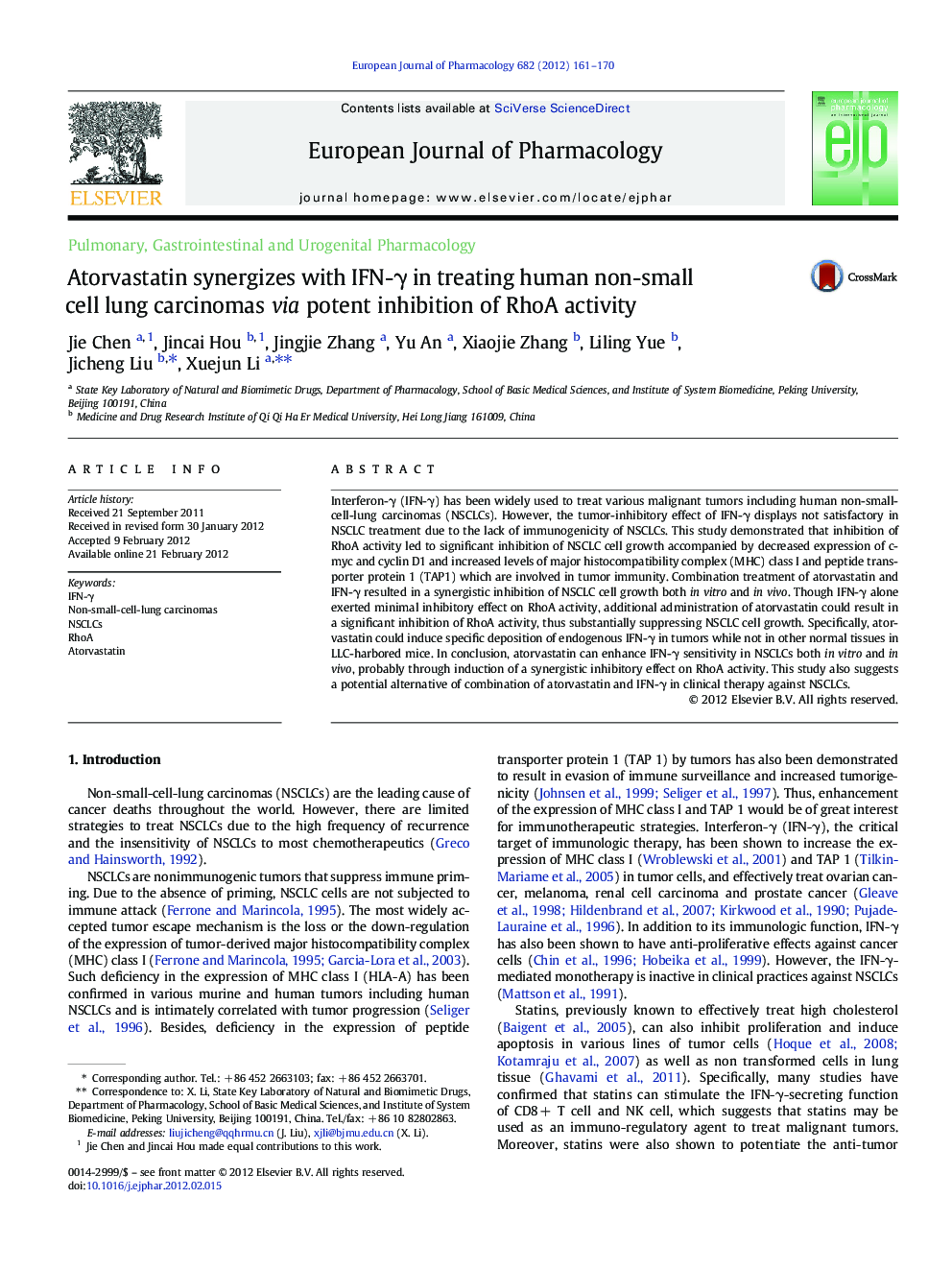| Article ID | Journal | Published Year | Pages | File Type |
|---|---|---|---|---|
| 5829719 | European Journal of Pharmacology | 2012 | 10 Pages |
Interferon-γ (IFN-γ) has been widely used to treat various malignant tumors including human non-small-cell-lung carcinomas (NSCLCs). However, the tumor-inhibitory effect of IFN-γ displays not satisfactory in NSCLC treatment due to the lack of immunogenicity of NSCLCs. This study demonstrated that inhibition of RhoA activity led to significant inhibition of NSCLC cell growth accompanied by decreased expression of c-myc and cyclin D1 and increased levels of major histocompatibility complex (MHC) class I and peptide transporter protein 1 (TAP1) which are involved in tumor immunity. Combination treatment of atorvastatin and IFN-γ resulted in a synergistic inhibition of NSCLC cell growth both in vitro and in vivo. Though IFN-γ alone exerted minimal inhibitory effect on RhoA activity, additional administration of atorvastatin could result in a significant inhibition of RhoA activity, thus substantially suppressing NSCLC cell growth. Specifically, atorvastatin could induce specific deposition of endogenous IFN-γ in tumors while not in other normal tissues in LLC-harbored mice. In conclusion, atorvastatin can enhance IFN-γ sensitivity in NSCLCs both in vitro and in vivo, probably through induction of a synergistic inhibitory effect on RhoA activity. This study also suggests a potential alternative of combination of atorvastatin and IFN-γ in clinical therapy against NSCLCs.
